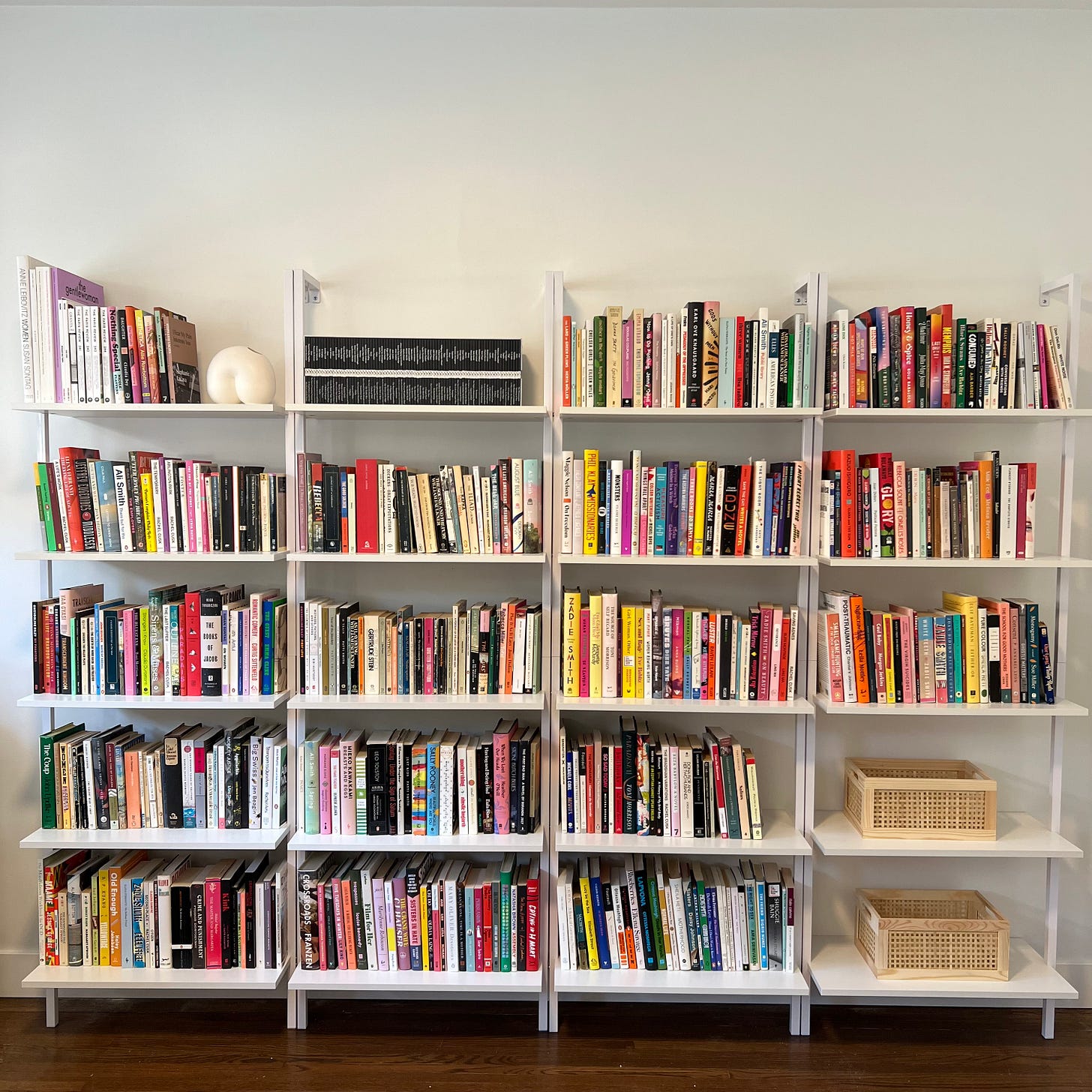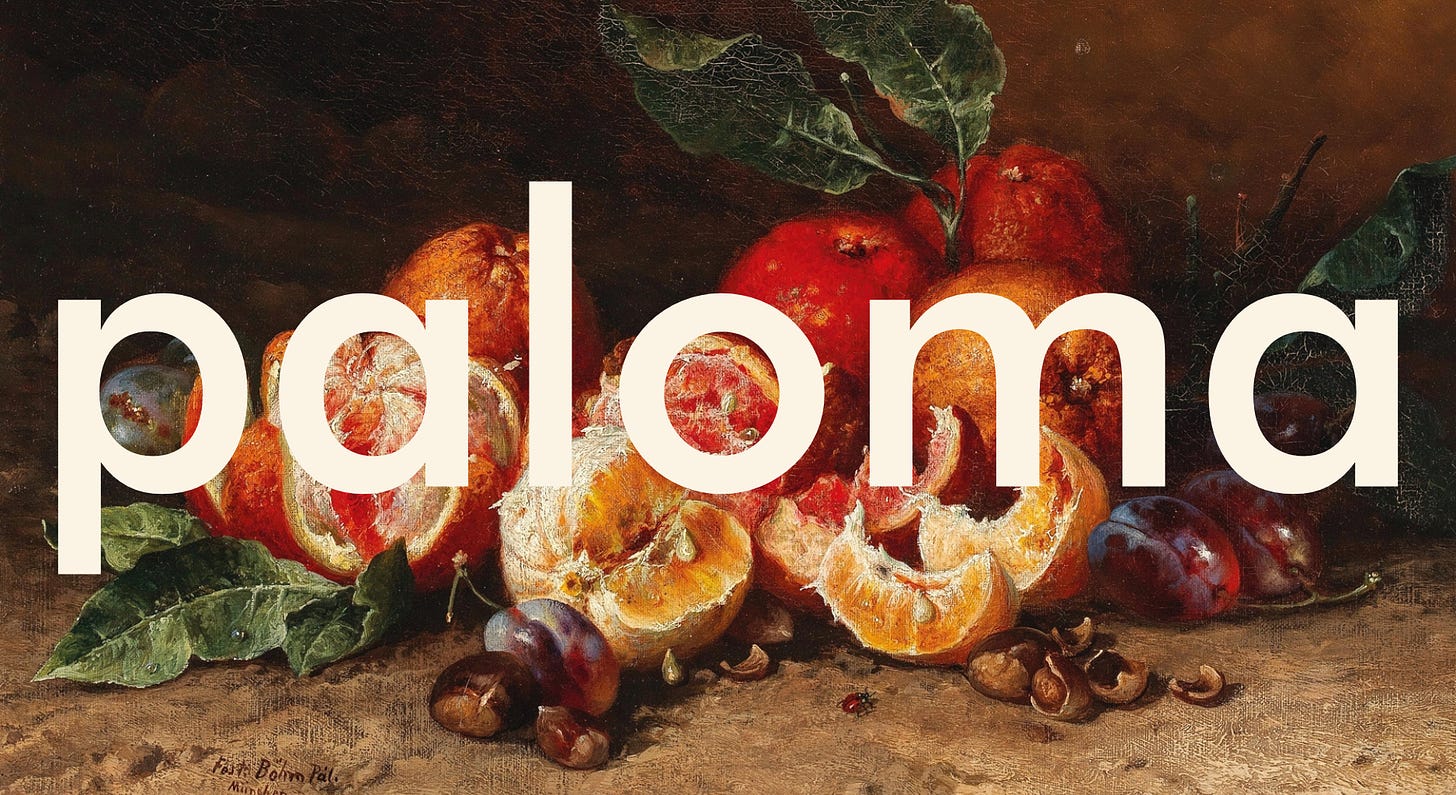Just Receiving What You Said
People watching

The Sunday Letter #24
Good news, my bookshelves are finally set up! My books had been in storage containers for nearly a month until these new bookshelves arrived. I twisted my back picking up one 200-lb container but it was all worth it to have a tidied office again. I can’t wait to dive into some of the books I’d forgotten I even had.
Yesterday, we helped my grandma move out of her apartment into a longterm care facility, something we’d been anticipating. My only living grandparent, my grandma has always been a feisty, funny, active, and joyous person. It’s not easy to watch someone move into a phase of life featuring memory loss and confusion. You hope they’ll remember you and that their mind will stay peaceful for them, but that can’t always be the case. The information, so often, seems to be there, just at the surface, but impossible to grasp.
My back pain gave me a nice excuse to spend the moving day at her side, chatting away while other family members moved her things. She asked who my husband was, a few times—we’d remind her of one of their inside jokes and she’d laugh, remembering her little flirtation she’d always kept with him. “I know how it is, when you’re really gone over someone,” she remarked to me later, after asking whether I was happy.
She also kept asking me why she was moving. “15 years, I’ve been here,” she reminded me, often. “I don’t know why I’m leaving—do you?”
At one point one of her friends stopped by to say goodbye. She told my grandma this was probably safer, probably for the best. “You’ve always been a stubborn one,” she teased. They hugged, holding on to each other. “Take care of her, okay?” her friend choked back her words, nodding to me as she departed.
As the move wrapped up, my grandma turned to me in surprise one last time: “Wait, what are we doing here?”
“We’re people watching, grandma.”
“Oh. Are we having fun?”
Of course. Always.
This week’s recommendations
Taxi Driver (dir. Martin Scorsese, 1976) — a neo-noir draped in red. Violent, obscene, lonely, neurotic, and hopeless. De Niro’s Bickle is a proto-incel, entitled and desperate for attention, focusing his sights on damsels in distress who have no interest in being saved. A strong early contender in Scorsese’s catalogue of misread male leads. I also enjoyed this review in The Ringer about revisiting Taxi Driver in the time of Trump.
*
I read Ripe by Sarah Rose Etter, which I found to be a spiritual successor to her gorgeous debut, The Book of X. Where The Book of X featured a young woman born with a knot in her stomach passed on from her mother, Ripe features a narrator followed around by a black hole. Ripe was a quintessential late-capitalist exploration of work and ambition, a Plath-esque tale updated for the age of Silicon Valley and tech startups. A solid read.
I also finished Boulder by Eva Baltasar (translated by Julia Sanches), which was phenomenal. It reminded me of Jessica Au’s Cold Enough for Snow in that it is told in snippets without any dialogue—both masterclasses in leaving important things unsaid. The diction was dark and seedy, with elegant prose that left me feeling sea-sick in the best way: “A mother’s love can be this: a tongue that never tires of licking.” Easily a favourite read of the year.
No emotion is more indulgent than feeling that you are intensely human. Thought it can also be the most tyrannical.
The race to save the world’s DNA.
Julia Cameron on learning to write sober. See also: Grace Lavery on being “an alcoholic writer.”
On the evolution of “sad girl literature.”
Jessica Zhan Mei Yu on representation and revisiting Sylvia Plath’s The Bell Jar:
I see something tender and reciprocal in these twin images of looking for the self in otherness.
On the controversial history of The Body Keeps the Score and how trauma became a dominant way for understanding life.
New word of the week: sprezzatura (sprez·za·tu·ra) — Italian noun — studied carelessness, especially as a characteristic quality or style of art or literature.
*
PS. If you follow me on Instagram, you may have seen that I started a casual art + literary magazine with some pals! It’s called paloma magazine and it’s based right here on Substack. Submission guidelines here — excited to share more soon.





